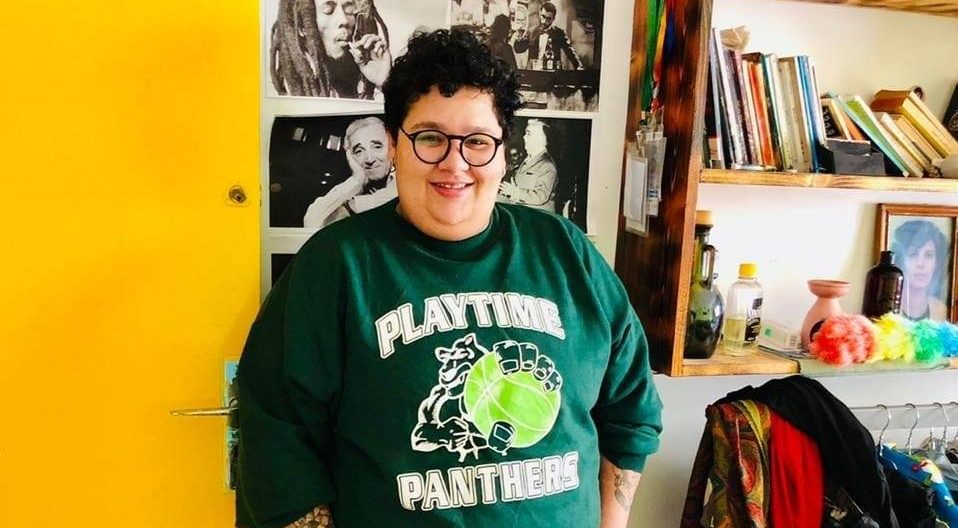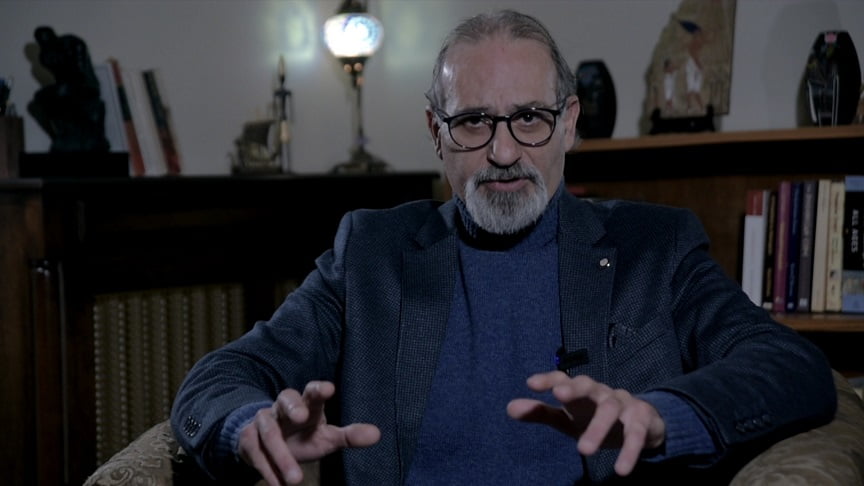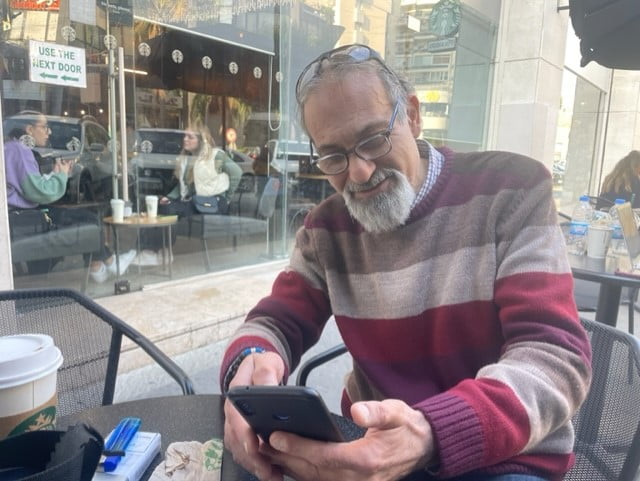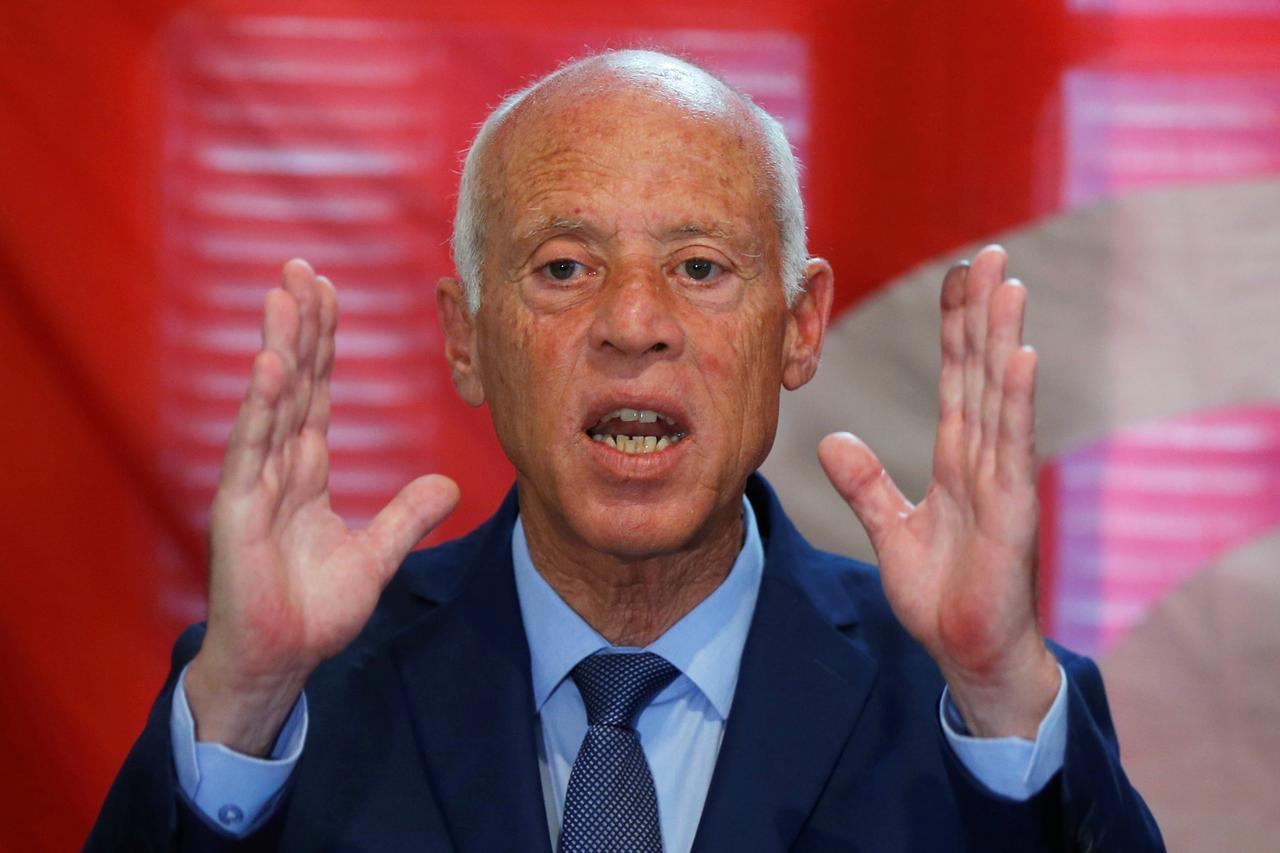
“Tunisian authorities should drop the charges against Rania Amdouni, a prominent women’s rights defender and LGBT activist”, said Hamza Nasri a Tunisian Human Rights activist and defender. Amdouni was sentenced to six months in prison last month for ‘insulting a public officer’.
By Arthur Blok
Nasri is a member of the Tunisian Association for Justice and Equality (Damj). He works as a program coordinator with the association on promoting vulnerable rights in Tunis. Damj provides legal, psychological and social assistance to the LGTBI community, Nasri explains from the associations headquarter in Tunis.
He is also an elected member of the Tunisian League of Human Rights (LTDH). “All the charges against Amdouni have to be dropped immediately”, he said.
“Being gay is a criminal offence in this country. If you are found guilty you can be sentenced up to three years in prison. One of our main goals is the de-criminalization of homo sexuality in Tunisia. As we can see with the recent arrest of Amdouni, we are not succeeding. The situation is worsening by the day”, Nasri added.
He was himself detained in December and January following his participation in peaceful demonstrations against the deteriorating economic situation in Tunis. The Public Prosecutor accused Nasri of ‘committing an act that violates the public morals’. Nasri: “There are now various charges of immorality against me. It is ridiculous. My trial is set to start in May.”
Arrest of Rania Amdouni
On 27 February, Rania Amdouni went to a police station to file a complaint about the continuous harassment she has faced from the police in relation to her LGBT activism and her participation in protests against police violence and deteriorating socio-economic conditions. Instead of registering her complaint, she was arrested.
Najet Zammouri the vice president of the LTDH is following the matter intensively as well. “There is nothing positive to say about this case unfortunately. It is a shame how Amdouni was arrested: she went to the police office to file a complaint about how she was treated by the authorities, minutes later she was arrested herself. Can you imagine?”, Zammouri explained.
“She was arrested because she is different than other people. She looks different, and she behaves different. That is her only crime. This is still something new in this country”, Zammouri adds.
On 1 March, without being questioned or given the right to challenge her detention, Amdouni was formally charged with ‘insulting a public officer while he was carrying out his duties,’ punishable by up to one year in prison under Article 125 of the Penal Code.
She was also charged with ‘causing embarrassment and disruption’, and ‘visible drunkenness.’ On 4 March, the District Court of Tunis convicted her on all three charges and took her into custody. She is currently imprisoned at the Manouba women’s prison in Tunis.
In a Facebook post published after her arrest and while in custody at the Septième police station, Rania Amdouni said: "I have been arrested because I cannot accept this harassment that I'm subjected to anymore."
Under international law, ‘insult’ is not a recognizable offense and does not justify a limitation on freedom of expression. In addition, the UN Human Rights Committee has stated that “the mere fact that forms of expression are considered to be insulting to a public figure is not sufficient to justify the imposition of penalties".

Populism
Activist Nasri - picture above this text - explains that Tunisia in recent years entered a dangerous political phase of populism by extremist parties such as the Salafist schooled al-Karama (‘Dignity’) Coalition and the more moderate Islamist Ennahda party, who use bold statements to please their voters.
“In February a member of parliament from the Al-Karama Coalition, Mohamed Affes, called for the limitation of female and gay rights. He was inviting people to attack homosexuals or women who are active in women’s right associations. This is just one example of the current climate in Tunisia”, said Nasri.
In August 2020, a police officer verbally abused Amdouni, as she walked by a group of officers in downtown Tunis, leading to a verbal argument between the two. This attracted attention from passers-by who then attacked her and three of her friends. The police did nothing to intervene and even incited the violence by using homophobic insults.
Amdouni formally pressed charges and an investigation was opened. However, despite the fact the identities of the officers involved are known, they were not suspended or arrested following the investigation.
Police harassment against her escalated after her participation in socio-economic protests in January 2021. Photos of her standing in front of police officers holding shields during a demonstration on 30 January went viral and unleashed a campaign of online harassment against her based on her gender identity and her appearance.
Arthur Blok is the Executive editor-in-chief of the Levant News, contact him @ [email protected].





